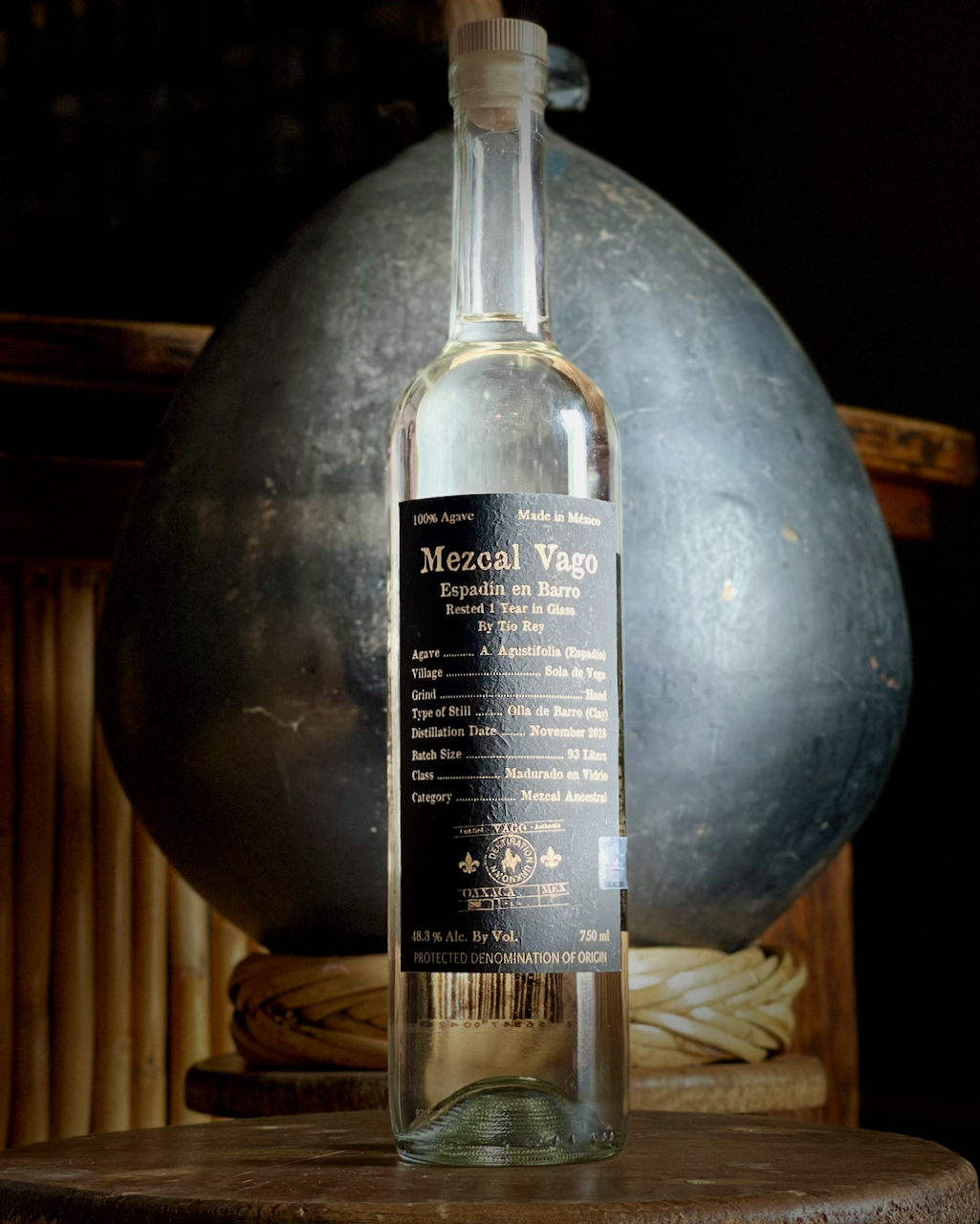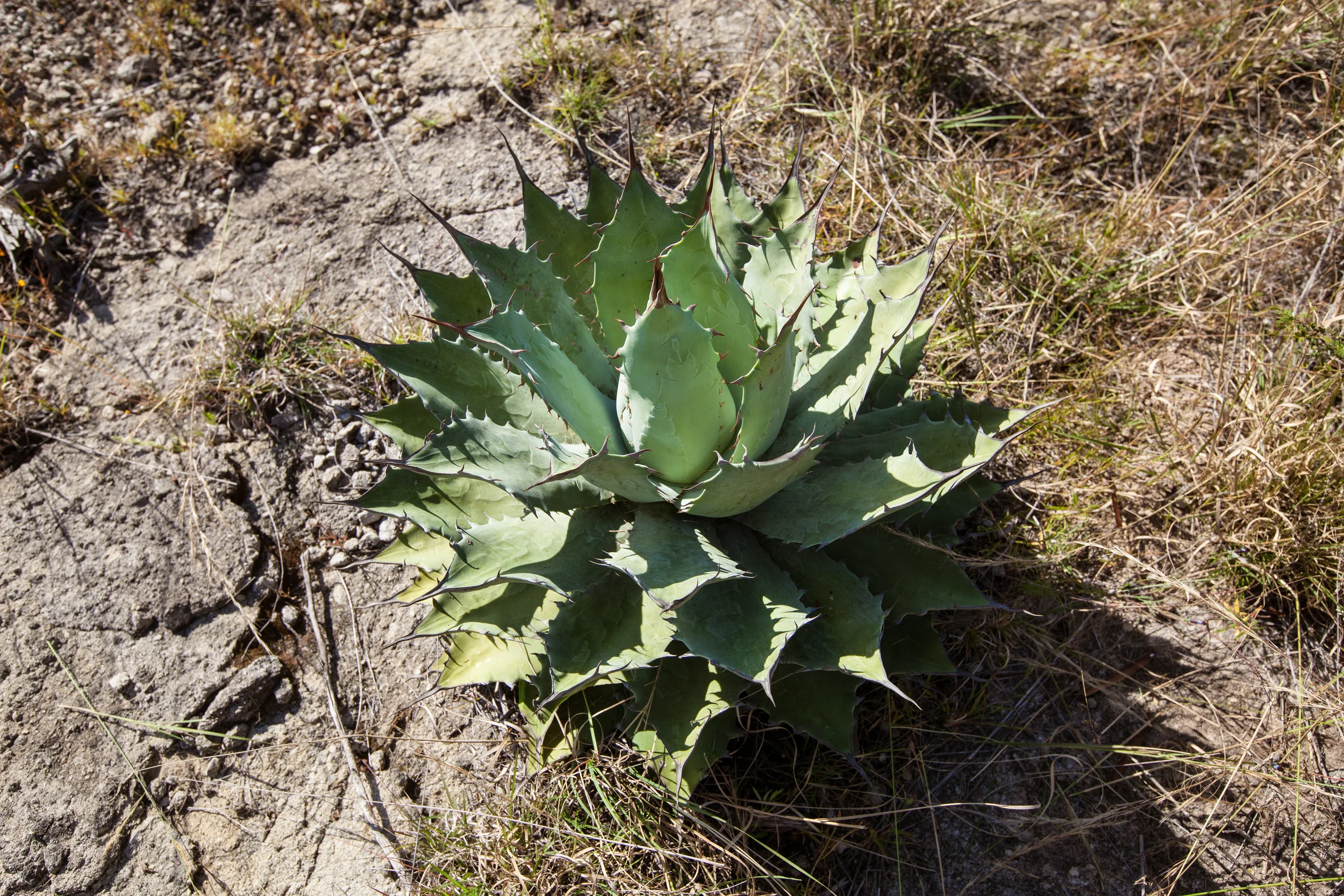Mezcal Vago Bien Picado
This tiny 42 liter batch was made by Aquilino García López at his palenque in Candelaria Yegolé, Oaxaca (16°29'41.36"N, 96°18'38.69"W). This mezcal is made from a blend Agave Espadín and Agave Tobalá.

Agave Espadín

Agave Tobalá
The term Bien Picado is one you hear occasionally when visiting palenques in Oaxaca. When Maguey is ripe it starts to sprout its quiote. When the quiote is about a meter high they chop it off so that the sugars stay in the plant. Almost immediately after being cut the bugs called picudos which are the adult form of the gusano de maguey begin to attack the plant. Picado can mean “bitten”, hence the term Bien Picado meaning “bitten up”. If a plant is left too long it will eventually rot and die within a certain timeframe depending on the varietal. Espadín will last about three months before becoming over-ripe and starting to rot. An average batch of Espadín (one oven full) is about 125 piñas, so the mezcalero waits until he has enough ripe piñas for a full batch. By the end, some plants are starting to get over-ripe and others have just become ripe.
It’s normal for a batch of Aquilino’s mezcal Espadín to contain around 10% Espadín bien picado. Occasionally you will find a mezcalero who has a small batch made from more bien picado maguey that the mezcalero didn’t want to include in his normal batch. This is coveted and usually saved for themselves. There is less sugar but a more complex flavor profile.
The current batch was made from 70% bien picado and came out of the still at 62.9% ABV. Then, colas (tail end of the distillate) from a batch of Tobalá were used to bring the mezcal to it’s final grade of 54% ABV. These colas were 26% ABV which is really high for colas, making them less bitter and funky but still bringing in a major infusion of flavor. These high grade Tobalá colas coupled with the body from the Espadín bien picado created a texture that is sublime.
This mezcal has been resting since its distillation in November of 2012.
This entire batch was sold to The Victory Wine Group, our beloved distributor in Texas. Many thanks to John Garrett for believing in Vago from the start!
Producer: Aquilino García López.

Location: Candelaria Yegolé, Oaxaca

The still (palenque) is on Aquilino’s ranch where he lives full time. He and his father moved it to its current location 15 years ago. It has moved around from nearby locations over the years. Aquilino remembers 6 generations of distillers but supposes the lineage goes back much further. Always done as a way of life, not a commercial enterprise. Aquilino and his son Mateo do nearly all of the work themselves.
The fermentation vats are made of pine and hold up to 1000 liters. The cooked agave and water ferment from the natural airborne yeasts in the air. No additional ingredients are used to make the Mezcal other than agave and water.
Each batch ferments for around a week. This varies depending on the ambient temperature at the time of fermentation. Aquilino distills his fermented mash before all of the sugar has fermented. This is sooner than other Mescalero’s’ techniques. He uses six fermentation vats. Aquilino has an alembic copper still that has a 250-liter capacity. He makes all the separations (cuts) by smell and taste. All of Aquilino’s mezcals are twice distilled. Aquilino’s Mezcals have a definite style. Bright, clean and bold without too much smoke. They have less bottom end (tails) than other mezcal lines, due in part to his “narrow” cuts on the still. This really lets the subtle notes of the agave shine through on the front end of the palate. All of Aquilino’s mezcal goes through a simple sediment filtration through a tubular cellulose filter before bottling. The bottling is done by hand in Oaxaca City. The very light filtration is the only way the mezcal is affected between when it was made on the palenque and how it ends up in the bottle.







